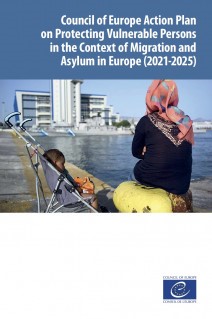
The Second Interim Report on the implementation of the Action Plan was published on 19 June 2024.
The First Interim Report on the Implementation of the Action Plan was published on 1 March 2023.

The Network of Focal Points on Migration provides an important forum for national authorities and policy-makers dealing with migration issues to meet and exchange information among themselves and with the Council of Europe on the protection of the human rights of migrants and refugees. The aim of the Network, composed of members from relevant ministries, is to address human rights challenges in the field of migration through the exchange of information, good practices and enhanced co-operation in the field of migration.
Stocktaking video of the Office of the Special Representative of the Secretary General on Migration and Refugees
The stocktaking video of the Office of the Special Representative of the Secretary General on Migration and Refugees, December 2023.
14-18.10. 75th UNHCR Executive Committee meeting and the Nansen Award Ceremony, Geneva
15.10. Annual EUAA Consultative Forum, La Valletta
22-23.10. FRONTEX, 35th meeting of Consultative Forum, Warsaw
12-13.12.10th meeting of the Network of Focal Points on Migration, Strasbourg




